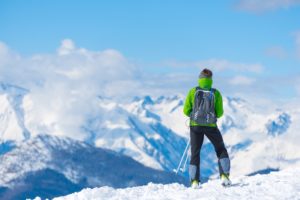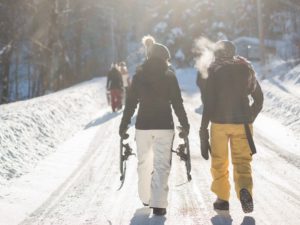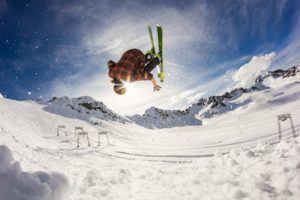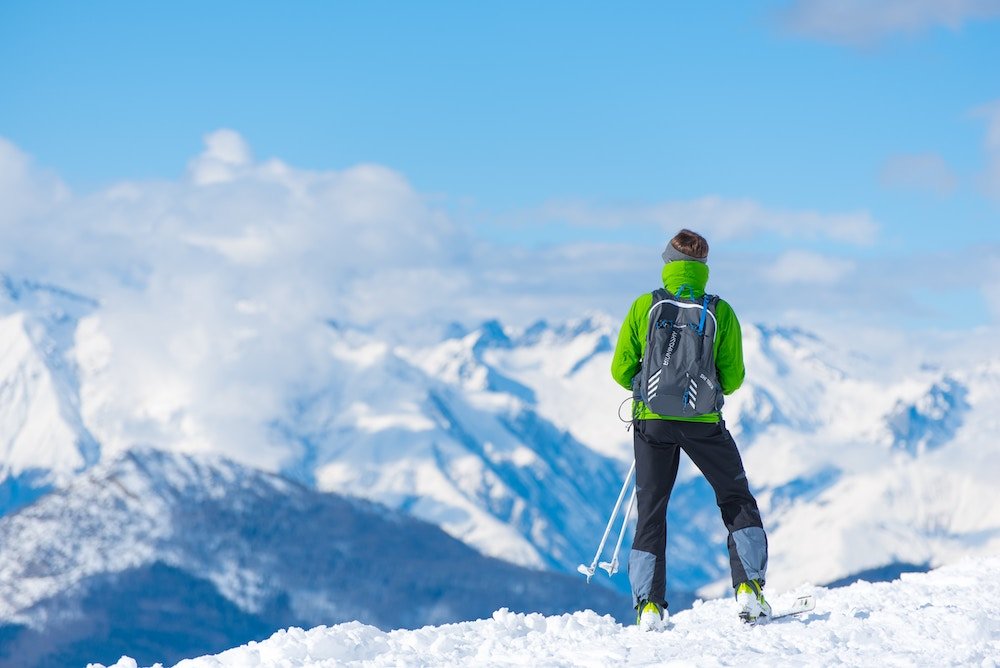 With great places to ski and snowboard in Arizona, from Flagstaff to Greer, now’s the season to gear up for taking advantage of the nearly 100 ski runs in the state. These winter sports are something to look forward to, especially if you live in the hot Phoenix area, but when accidents occur on the slopes, you could run into a scary situation.
With great places to ski and snowboard in Arizona, from Flagstaff to Greer, now’s the season to gear up for taking advantage of the nearly 100 ski runs in the state. These winter sports are something to look forward to, especially if you live in the hot Phoenix area, but when accidents occur on the slopes, you could run into a scary situation.
According to the latest statistics from the Insurance Information Institute, in 2015, there were more than 25,000 injuries sustained in the United States due to snowboarding, and there were 31 skier fatalities. A 2012 study by the Western Michigan University School of Medicine found head injuries among snowboarders and skiers in the U.S. increased 60 percent from 2004 to 2010, when there were 14,947 head injuries. No matter how skilled you are, there are always risks of serious injuries on the snow.
Sometimes, the ski resort is to blame for an accident due to negligence on behalf of the staff or the liability the premises presents to visitors. Other times, another skier may be a guilty party in a serious accident. If you get hurt while skiing or snowboarding, or participating in any other winter activity at a ski resort this upcoming season, keep this information in mind to protect your rights.
 What to Do After an Accident at a Ski Resort
What to Do After an Accident at a Ski Resort
Before you head out on the powder, ask the resort what the proper procedure is in case of an accident. Even if you’re a former winter sports professional, you may still be harmed on the slopes, so knowing what actions the resort recommends you take can help protect you. Usually, they’ll recommend contacting their “ski patrol,” or the employees whose role it is to monitor visitor activity and help when needed.
If you’re knocked over or experience some kind of other accident at a ski resort, you should immediately call for help. If you are unable to move, ask someone for assistance. If there was another person involved with the accident, ask them to stay at the scene until a resort representative arrives. Be sure to notice details of their appearance, including their gender, what they’re wearing, and what kind of gear they have, in case they try to flee the scene. Ask them for their name and where they’re from, because these answers will also be valuable if they leave.
If there are witnesses nearby, ask them to stay close, as well. Just like a car accident situation, having witness testimony is valuable for a potential future claim. You’ll also want to try to secure the area and clear people from the line of future danger by encouraging people to move off to the side while you wait for help. Yell loudly for help to alert other skiers of the accident.
Before leaving the scene of the accident, document the scene by shooting photo or video evidence of any injuries and anything that may have played a factor in the accident, such as an equipment obstacle. Shoot photos from as many angles as possible, and be sure to capture ski tracks.
Get medical treatment immediately, because you may have injuries that are not immediately apparent. Get the full contact information of any skier or snowboarder who was involved in the accident, as well as any witnesses. Obtain contact information for the ski resort, including the personal contact information of any employee you interacted with who handled the accident.
 Do You Have a Personal Injury Claim?
Do You Have a Personal Injury Claim?
Arizona ski resorts are protected by Arizona’s Ski Safety Act, which mandates that skiers and snowboarders assume all inherent risks when they participate in their sport. These risks include collisions with other skiers and natural or human-made objects, changing weather conditions, snow surface conditions, and injuries due to the skier’s own abilities. However, the law does not protect resorts from gross negligence. Examples where an injured party may find a ski resort at fault include:
- Improper maintenance of faulty equipment
- Misleading signage or failure to meet signage and notice requirements
- Failure to meet tramway compliance
Regarding negligence on behalf of other skiers or snowboarders, skiers and snowboarders are expected to give others in front of them the right of way, not obstruct trails, merge safely, and move with control to avoid others. Not acting with reasonable care while on the slopes may constitute negligence on behalf of that skier or snowboarder.
If you are in an accident while skiing or snowboarding and have suffered serious injuries, you may have a personal injury claim. The only way to know for sure is to contact a Phoenix personal injury lawyer who can provide more insight into a potential claim. If you have questions, please contact the Millea Law Firm at (480) 462-5540 or online for information on ski resort accidents.


Recent Comments